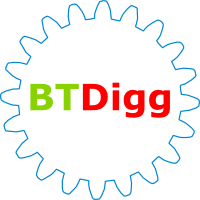BTDigg - The Free BitTorrent DHT Search Engine
The world of file sharing has evolved tremendously over the past two decades. Among the countless platforms and tools that emerged from the BitTorrent ecosystem, BTDigg gained recognition as a lightweight, reliable, and innovative torrent search engine. Unlike traditional torrent sites, BTDigg carved a niche for itself by offering a DHT-based, trackerless search mechanism — something revolutionary in its time. This article explores what BTDigg was, how it worked, and why it’s still relevant to torrent users.
What is BTDigg?
BTDigg is a BitTorrent DHT (Distributed Hash Table) search engine. Unlike conventional torrent websites that rely on indexed files from trackers, BTDigg operated directly within the BitTorrent DHT network. This meant that BTDigg did not host any torrent files or metadata itself — instead, it searched the torrent swarm for magnet links and metadata in real time. This made it faster, more decentralized, and more resistant to takedowns.
Launched in 2011, BTDigg was developed by a Russian team and became popular among users who valued anonymity, speed, and access to obscure or new content.

What happened to BTDigg.com?
As of now, the original btdigg.com domain is no longer operational. The site went offline after years of service, likely due to legal pressure, domain seizures, or the developers voluntarily ceasing operations. Like many other torrent-related platforms, BTDigg faced growing scrutiny over its role in facilitating access to copyrighted material.
Though the official domain is gone, clones and mirrors of BTDigg occasionally surface — but users should approach these with caution due to potential risks.
Key features of BTDigg
- Trackerless Search: Uses DHT, so no central tracker dependency
- Magnet Link Extraction: Provides magnet links instead of hosting torrent files
- Minimalist Interface: Clean, fast-loading design with advanced search options
- Real-Time Indexing: Constantly updates with new torrents from DHT
- No Registration Needed: Fully open access, no user account required
- Multilingual Support: Available in several languages, appealing to a global audience
How does BTDigg work?
BTDigg uses a crawler that connects to the BitTorrent DHT network — a decentralized system used by modern torrent clients to share data without relying on a central server. By listening to DHT traffic, BTDigg captures info hashes and extracts metadata, such as file names, sizes, and peer counts.
It then indexes this information and makes it searchable to users, who can retrieve magnet links and use them in any torrent client to start downloading the content directly from peers.
What can users find on BTDigg?
While BTDigg did not host any files itself, it provided access to a vast range of content, including:
- Movies and TV shows
- Games and Software
- Music albums
- Ebooks and learning material
- Anime and cartoons
- Documentaries and independent films
Best Alternatives to BTDigg
- Torrentz2 – A powerful torrent meta-search engine
- 1337x – Popular with a wide variety of torrent categories
- The Pirate Bay (TPB) – A classic, decentralized torrent site
- LimeTorrents – Reliable with a clean UI
- Zooqle – Focuses on verified torrents
- YTS.mx – Best for high-quality movie torrents
- BT4G – A DHT-based alternative similar to BTDigg
FAQs
Can I download torrents from BTDigg?
No, BTDigg does not host files or allow direct downloads. It only provides magnet links, which must be used with a torrent client (like qBittorrent or uTorrent) to start downloading.
Is BTDigg trustable?
Yes, in its original form, BTDigg was trusted by many users for its lightweight, trackerless search functionality. However, now that the original site is offline, mirrors and clones should be used with caution to avoid malware or scams.
Is BTDigg safe to use?
The original BTDigg was relatively safe, but downloading torrents always carries risk of malicious files. Always scan downloads, use reputable clients, and consider using a VPN to protect your identity.
Is BTDigg legal?
BTDigg itself did not host or share any copyrighted material, but it indexed content on the DHT network — some of which could be copyrighted. Using BTDigg may be legal, but downloading certain torrents might not be, depending on your country's laws.
Do I need an account to use BTDigg?
No. BTDigg required no registration or login, making it simple and anonymous to use.
How to have the best experience with BTDigg?
- Use a VPN to stay anonymous
- Enable ad blockers to avoid suspicious mirror ads
- Use a modern torrent client (e.g., qBittorrent)
- Stick to torrents with many seeders
- Scan all downloads with antivirus software
Which devices does BTDigg support?
BTDigg worked on all web browsers, meaning you could use it from:
- Windows, macOS, and Linux computers
- Android and iOS smartphones
- Tablets and smart TVs (with browsers)
Final Thoughts
BTDigg was a pioneer in decentralized torrent search, embracing DHT when many platforms still depended on trackers. Although it's no longer active in its original form, its legacy lives on in newer tools and services. If you're venturing into torrenting today, understanding how BTDigg worked offers insight into the evolution of peer-to-peer sharing and the importance of decentralization in preserving digital freedom.
